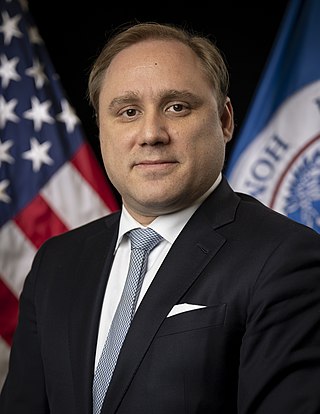
Computer security, cybersecurity, digital security or information technology security is the protection of computer systems and networks from attacks by malicious actors that may result in unauthorized information disclosure, theft of, or damage to hardware, software, or data, as well as from the disruption or misdirection of the services they provide.
Information security standards or cyber security standards are techniques generally outlined in published materials that attempt to protect the cyber environment of a user or organization. This environment includes users themselves, networks, devices, all software, processes, information in storage or transit, applications, services, and systems that can be connected directly or indirectly to networks.
A cybersecurity regulation comprises directives that safeguard information technology and computer systems with the purpose of forcing companies and organizations to protect their systems and information from cyberattacks like viruses, worms, Trojan horses, phishing, denial of service (DOS) attacks, unauthorized access and control system attacks. While cybersecurity regulations aim to minimize cyber risks and enhance protection, the uncertainty arising from frequent changes or new regulations can significantly impact organizational response strategies.

The Federal Office for Information Security is the German upper-level federal agency in charge of managing computer and communication security for the German government. Its areas of expertise and responsibility include the security of computer applications, critical infrastructure protection, Internet security, cryptography, counter eavesdropping, certification of security products and the accreditation of security test laboratories. It is located in Bonn and as of 2024 has about 1,700 employees. Its current president, since 1 July 2023, is former business executive Claudia Plattner, who took over the presidency from Arne Schönbohm.

Jeff Moss, also known as Dark Tangent, is an American hacker, computer and internet security expert who founded the Black Hat and DEF CON computer security conferences.
The Institute for Information Infrastructure Protection (I3P) is a consortium of national cyber security institutions, including academic research centers, U.S. federal government laboratories, and nonprofit organizations, all of which have long-standing, widely recognized expertise in cyber security research and development (R&D). The I3P is managed by The George Washington University, which is home to a small administrative staff that oversees and helps direct consortium activities.
The National Cybersecurity Center (NCC) was founded in 2016 as a 501(c)(3) nonprofit organization in Colorado Springs, Colorado. It was started from a vision of then Governor John Hickenlooper, in coordination with several people from the University of Colorado Colorado Springs (UCCS) and the community. The NCC serves both public and private organizations and individuals through training, education, and research.

Thomas Edward Donilon is an American lawyer, business executive, and former government official who served as the 22nd National Security Advisor in the Obama administration from 2010 to 2013. Donilon also worked in the Carter and Clinton administrations, including as chief of staff of the U.S. State Department. He is now Chairman of the BlackRock Investment Institute, the firm's global think tank.
Control system security, or industrial control system (ICS) cybersecurity, is the prevention of interference with the proper operation of industrial automation and control systems. These control systems manage essential services including electricity, petroleum production, water, transportation, manufacturing, and communications. They rely on computers, networks, operating systems, applications, and programmable controllers, each of which could contain security vulnerabilities. The 2010 discovery of the Stuxnet worm demonstrated the vulnerability of these systems to cyber incidents. The United States and other governments have passed cyber-security regulations requiring enhanced protection for control systems operating critical infrastructure.

F. William Conner is an American business executive. Conner has worked across a variety of high-tech industries, specializing in corporate turnaround, cybersecurity, data and infrastructure.
The National Infrastructure Advisory Council (NIAC) is a United States government advisory council, which advises the President of the United States on the security of information systems in banking, finance, transportation, energy, manufacturing, and emergency government services. The George W. Bush Administration's executive order 13231 of October 16, 2001 created the NIAC, and its functioning was last extended until September 30, 2023 by executive order 14048 of the Biden Administration.

Dmitri Alperovitch is an American think-tank founder, author, investor, philanthropist, podcast host and former computer security industry executive. He is the chairman of Silverado Policy Accelerator, a geopolitics think-tank in Washington, D.C., and a co-founder and former chief technology officer of CrowdStrike. Alperovitch is a naturalized U.S. citizen born in Russia who came to the United States in 1994 with his family.

The National Cybersecurity and Critical Infrastructure Protection Act of 2013 is a bill that would amend the Homeland Security Act of 2002 to require the Secretary of the Department of Homeland Security (DHS) to conduct cybersecurity activities on behalf of the federal government and would codify the role of DHS in preventing and responding to cybersecurity incidents involving the Information Technology (IT) systems of federal civilian agencies and critical infrastructure in the United States.
CrowdStrike Holdings, Inc. is an American cybersecurity technology company based in Austin, Texas. It provides cloud workload and endpoint security, threat intelligence, and cyberattack response services. The company has been involved in investigations of several high-profile cyberattacks, including the 2014 Sony Pictures hack, the 2015–16 cyber attacks on the Democratic National Committee (DNC), and the 2016 email leak involving the DNC.
Kiersten Todt is the Chief of Staff of the U.S. Cybersecurity and Infrastructure Security Agency (CISA). She previously served as the managing director of the Cyber Readiness Institute as well as a resident scholar at the University of Pittsburgh in Washington, DC with the Institute for Cyber Law, Policy, and Security and was appointed for this position on June 1, 2017. Before taking this position, she worked under Barack Obama in the national cybersecurity commission. She was the president and partner with Liberty Group Ventures, LLC. She has been a partner with Good Harbor Consulting. She was cognizant of the organization's North America crisis management practice.

The National Initiative for Cybersecurity Education (NICE) is a partnership between government, academia, and the private sector focused supporting the country's ability to address current and future cybersecurity education and workforce challenges through standards and best practices. NICE is led by the National Institute of Standards and Technology (NIST) in the U.S. Department of Commerce.

The Cybersecurity and Infrastructure Security Agency (CISA) is a component of the United States Department of Homeland Security (DHS) responsible for cybersecurity and infrastructure protection across all levels of government, coordinating cybersecurity programs with U.S. states, and improving the government's cybersecurity protections against private and nation-state hackers.

Christopher Cox Krebs is an American attorney who served as Director of the Cybersecurity and Infrastructure Security Agency in the United States Department of Homeland Security from November 2018 until November 17, 2020, when President Donald Trump fired Krebs for contradicting Trump's claims of election fraud in the 2020 presidential election.
The 2018 SingHealth data breach was a data breach incident initiated by unidentified state actors, which happened between 27 June and 4 July 2018. During that period, personal particulars of 1.5 million SingHealth patients and records of outpatient dispensed medicines belonging to 160,000 patients were stolen. Names, National Registration Identity Card (NRIC) numbers, addresses, dates of birth, race, and gender of patients who visited specialist outpatient clinics and polyclinics between 1 May 2015 and 4 July 2018 were maliciously accessed and copied. Information relating to patient diagnosis, test results and doctors' notes were unaffected. Information on Prime Minister Lee Hsien Loong was specifically targeted.
The Cyber Safety Review Board was established by the United States Secretary of Homeland Security. Modeled after the National Transportation Safety Board, it will meet in cases of significant cybersecurity incidents. The board's creation was announced upon President Joe Biden's signing of Executive Order 14028 on May 12, 2021.










